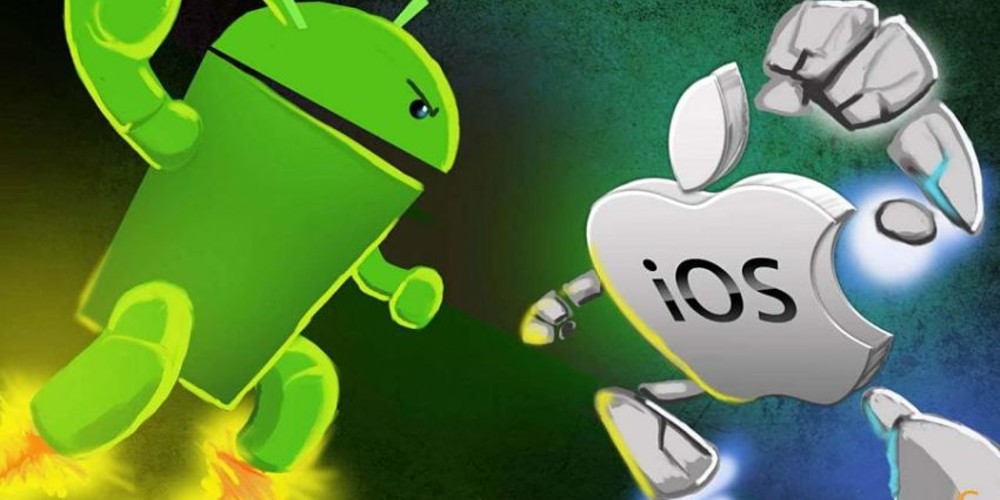Deciphering the Rivalry: Choosing Between Android and Apple for Your Next Portable Device

In the ever-evolving world of technology, two giants stand tall, casting long shadows over the landscape of portable devices: Android and Apple. These behemoths have carved out distinct territories, each boasting a loyal following. For consumers standing at the crossroads of their next digital purchase, the decision between an Android device and an Apple product can seem daunting. This article aims to winnow the vast amount of information available into a concise, easy-to-understand guide that will help you make an informed decision about which ecosystem is best suited to your needs, lifestyle, and preferences.
Understanding the Contenders
Apple, with its sleek design and seamless ecosystem, offers a premium user experience. Products like the iPhone, iPad, and MacBook work together effortlessly, making it a go-to choice for users who value simplicity and efficiency. On the other hand, Android, led primarily by Google but encompassing a wide range of manufacturers like Samsung, OnePlus, and Huawei, offers unparalleled customization options and variety. With Android, users can tailor their devices to their exact preferences, enjoying a level of freedom and flexibility that is hard to find in the Apple ecosystem.
Pros and Cons of Each Ecosystem
Apple's Pros:
- Unified Ecosystem: Apple's devices work together seamlessly, offering features like Handoff, where you can start work on one device and pick it up on another.
- Privacy and Security: Apple has a strong reputation for protecting user privacy and offering robust security features.
- Quality of Apps: The App Store is renowned for its quality control, ensuring that apps meet a high standard.
Apple's Cons:
- Price: Apple products often come with a premium price tag, making them less accessible to budget-conscious consumers.
- Less Customization: The controlled ecosystem means less freedom to customize your device and its functionalities.
- Compatibility: Apple products typically work best with other Apple products, limiting interoperability with devices from other ecosystems.

Android's Pros:
- Customization: From the home screen layout to the operating system itself, Android offers a level of customization that is unmatched.
- Variety of Devices: Android powers a wide range of devices across different price points, making technology accessible to a broader audience.
- Google Integration: Android devices integrate seamlessly with Google's suite of services, including Maps, Drive, and Assistant, enhancing productivity and convenience.
Android's Cons:
- Fragmentation: The wide variety of devices and manufacturer-specific skins can lead to fragmentation, affecting app compatibility and user experience.
- Updates: Depending on the device manufacturer, Android updates can be slow to roll out, leaving users waiting for the latest features and security patches.
- Malware Risks: The open nature of the Android ecosystem makes it somewhat more susceptible to malware and security threats, though common sense and good security practices can mitigate these risks.
Which is Best for You?
Deciding between Android and Apple boils down to personal preference and priorities. If you value a seamless, user-friendly experience and are willing to invest in premium products, Apple might be the way to go. Its ecosystem is highly appealing for those who own multiple Apple devices, as the interconnectivity offers a level of convenience that is hard to beat.
On the other hand, if you prioritize customization, variety, and value, Android could be your best bet. The ability to tailor your device to your exact liking and the wide range of choices, from budget to flagship, ensure that there's an Android device for almost everyone. Additionally, for users deeply entrenched in Google's ecosystem, Android offers superior integration.
In the end, the choice between Android and Apple is not about which ecosystem is objectively better but about which one better suits your needs, lifestyle, and budget. By considering the pros and cons of each, you can make an informed decision that aligns with your priorities. Whether you choose the sleek and integrated experience of Apple or the customizable and varied world of Android, the most important factor is how the device fits into your life. As technology continues to advance, both ecosystems are constantly evolving, offering consumers an ever-improving array of options to enhance their digital lives.





